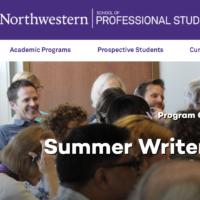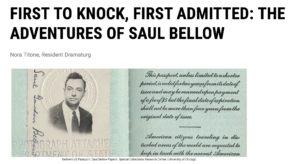Mondays with Mike: Rational, humane immigration policy is within reach
July 1, 2019 • 2 Comments • Posted in Mike Knezovich, Mondays with Mike, politicsSome Sunday reading brought me back to last week’s topic of immigration.
This Sun-Times piece, about White Sox pitcher Lucas Giolito being outspoken about his opinions, illustrated how his personal experience shaped his views on immigration, legal and illegal.
Giolito grew up in affluence—his mother a successful actress and his father an executive at a big video game company. He grew up under the care of his parents and a nanny named Berta. Berta crossed the border to Texas illegally from Mexico, and found her way to Southern California, where she landed with the Giolito family. From the article:
“There were reasons she basically had to escape El Salvador,” Giolito said. “She basically was on foot all the way up through Central America and across Mexico. Her story is unbelievable. She had to go through hell to get over here and make a better life.
“Sometimes when I see the stuff about ‘illegal immigrants are bad,’ da-da-da — especially with the current [presidential] regime — I just shake my head at it because you don’t know what these people go through. My family was lucky enough to find her. She was lucky enough to find my family. She lived in our home and had a huge part in raising me from when I was a tiny baby until probably 12 or 13.”
Berta eventually became a citizen.
Now, I know that some would say that’s heartwarming and all, but illegal is illegal. And we have to enforce immigration laws and manage illegal immigration.
And I agree.
But what we’re doing is, without question, unnecessarily cruel and not even effective. So, leaving the personal realm, let’s move to the cold hard policy realm, which Steve Chapman of the Chicago Tribune covered in another Sunday article. Chapman points out that when Democratic Presidential candidate Julian Castro proposed decriminalizing illegal border crossings during Wednesday night’s debate, he was accused of advocating for open borders. Upon closer examination, Castro is doing nothing of the kind. Chapman writes:
When Julián Castro advocated repealing the law making it a crime to cross the border without permission, he confirmed that in today’s political environment, there is no safe harbor for common sense. Republicans gleefully accused him of favoring “open borders,” as though he were going to eliminate all checkpoints and border agents.
Here’s the deal: Making it a criminal offense allows authorities to separate children from their parents.
“If it were a civil offense,” Chapman explains, “migrants would not be jailed, only fined and deported — removing the pretext for tearing kids away.”
So, we’d still have the same system that apprehends illegals, but we wouldn’t have to house them for long periods of time, we wouldn’t cruelly separate children from their parents…hmm, seems like a decent enough idea.
As Chapman points out, in addition to being unnecessarily cruel, the current policy isn’t working.
Castro’s critics believe criminal penalties serve as a vital deterrent to lawbreaking. To which Ur Jaddou, director of DHS Watch at America’s Voice, a pro-immigration group, replies: “Has it been working?” The answer: no. This administration, she told me, “inherited the lowest number of border apprehensions in 46 years, and all we have seen since is a massive increase.”
Toughness is a failure. A 50% rise in prosecutions over the past five years has not dissuaded Central Americans from coming. The number of southwest border apprehensions has tripled since Donald Trump became president.
Central Americans who flee face an arduous journey of 1,500 miles or more. They often pay criminal smugglers thousands of dollars to help. If the expense and the prospect of robbery, rape and murder on the way don’t stop these migrants, the chance of being arrested here certainly won’t.
I hope you’ll read the entire piece. (BTW, Chapman is hardly a bleeding heart.)
Like him, I don’t know how anyone formulates or abides by the current policy. It’s hard to describe how it makes me feel that it’s being done with my tax dollars in my nation’s name.
Actually, come to think of it, it’s easy.
Ashamed is how I feel.




 I was out with a friend last week who takes a healthy interest in exactly what makes people tick. She didn’t know me earlier in life, when I could see, and said she couldn’t help but wonder. “Do you think your personality changed when you went blind?”
I was out with a friend last week who takes a healthy interest in exactly what makes people tick. She didn’t know me earlier in life, when I could see, and said she couldn’t help but wonder. “Do you think your personality changed when you went blind?”